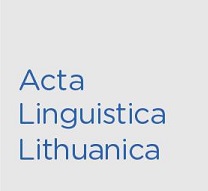Naujų krypčių užuomazgos Latvijos onomastikoje
The Rudiments of New Tendencies in Latvian Onomastics
Author(s): Laimute BalodeSubject(s): Theoretical Linguistics, Applied Linguistics, Sociolinguistics, Descriptive linguistics, Baltic Languages
Published by: Lietuvių Kalbos Institutas
Keywords: onomastics; socioonomastics; urbanonymics; ergonymics;
Summary/Abstract: The article is devoted to recent socio-onomastic studies at the University of Latvia. They mostly cover research works in toponymics and anthroponymics carried out on the basis of questionnaires completed by philology students: the overview of rare, only once registered personal names in Latvia, as well as new trends and tendencies in the formation of Latvian personal names; parents’ motivation and value reference-points in choosing the newborn’s name, sources and persons involved in the process of choosing the name. In the field of toponymy an interest has especially increased in informal urbanonymy: about 700 slang urbanonyms from the largest cities of Latvia were collected and analysed trying to find out the motivation of their formation, the ways of derivation and young people’s attitude towards such unofficial place names. Ergonymics is yet another area of onomastics, which has not been analyzed before. The work of Kristiāna Tīlika started the study of Latvian ergonyms (names of institutions, companies, firms, enterprises and other businesses): employees of various companies were interviewed about the origin and motivation of the company’s name. Unusual, creative names of cafés, restaurants and shops of Riga were studied by Ojārs Bušs. The interest in the names of commercial products (or economonyms) has been increasing in the world over the last decades. The functions of such names as Latvija and Rīga in ergonyms and economonyms of Latvia were examined by Laimute Balode. O. Bušs tried to compare economonyms with the nation’s mentality.
Journal: Acta Linguistica Lithuanica
- Issue Year: 2015
- Issue No: 72
- Page Range: 55-72
- Page Count: 18
- Language: Lithuanian

